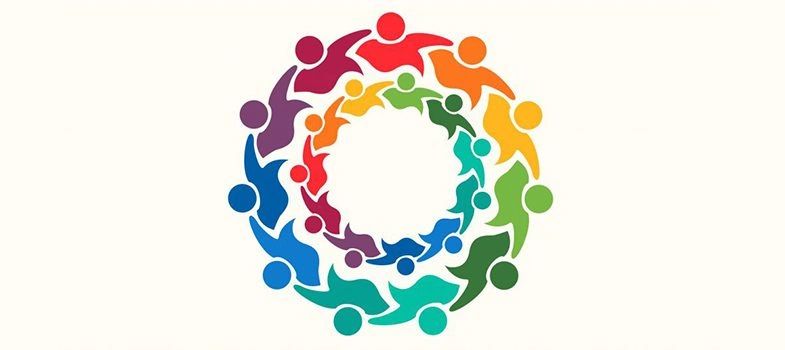
There is a great exposition happening in America. The obstacles of this new decade have brought to light real disparities of human rights that profoundly affect every American. In the last three months, we have experienced: a global pandemic that is killing hundreds of thousands of people; mandated periods of prolonged, crippling social isolation; the most pervasive economic depression seen in at least 100 years; and now, mass protests challenging the core of civil policy.
There are many who are dissatisfied with the status quo of what it means to be American, and they are demanding change to the foundation of America’s social contract. The changes desired are basal in nature, ubiquitous in reach, and sensitive to everybody.
Those hoping to encourage the change are passionate in their pursuits. Their passion is inspiring to many, and yet intolerable for others. Intolerance causes animosity and bitterness, which impedes the progress change-makers wish to make. Intolerance creates barriers preventing the necessary collaboration that is ultimately essential to solving our nation’s crises.
—
Intolerance is not uncommon to the human condition. We are designed to have little to no tolerance for anything that makes us uncomfortable. Our biology desires comfort above all else: associating comfort as safety. When any change of any degree threatens what we are accustomed to, we feel discomfort. This discomfort is often expressed as feelings such as fear, anger, anxiety, etc. These forces of discomfort motivate us to run away from or lash out against those who threaten our accustomed environment. It’s survival.
How can change ever be expected to occur if all humans are primed to feel visceral intolerance for any potential disruptor of normalcy? Short answer: for change to occur, we must intentionally challenge the biological signals that alert danger and then force ourselves to tolerate the discomfort. We must tolerate this discomfort until our bodies can see firsthand that, on the other side of all this pain, there is something better than what was normal. It takes faith, and it takes risk.
Unfortunately, risk is not easy or comfortable for individuals who desire to be changemakers. With a genuine curiosity to consider change, changemakers understand that there is discomfort in pursuing change and recognize the potential for greater reward on the other side of change.
Here lies the dilemma: individuals who wish to inspire change already experience the genuine motivators that allow them to tolerate discomfort. They feel an urgency to share their revelations. How might they communicate what motivated them when others refuse to be motivated?
In many cases, they simply get louder. They get loud with volume, actions, words, numbers, consistency, and anything they can think of to get their message across. This is typically the recipe for behaviors that most people will not tolerate. And so we go in circles.
Those who desire change want to be heard because they believe if you knew what they knew—if you felt how they felt—you too would be interested in change despite your discomfort.
The challenge for those who desire no change is learning how they can listen. How can they open themselves to the discomfort of others to hear what they have to say? How can they communicate to those who desire change, understanding and solidarity?
—
Hearing—truly hearing someone—is a skill that takes practice. In psychotherapy, we call it active listening. Active listening establishes empathy in a relationship because it communicates to the speaker that the listener is with them. It requires hearing without making judgements, and that can be uncomfortable.
When engaged in active listening, the listener does not tend to personal thoughts, concerns, or reactions about content shared. An active listener never replies with a preconceived answer that begins with, “Yeah, but…”, “At least it’s…” or any other retort. Instead, an active listener validates the feelings of the speaker by reiterating and summarizing what the speaker said. It requires a level of mindfulness.
In psychotherapy, we use genuine active listening to build bridges of trust and understanding called empathetic rapport between client and therapist. When empathetic rapport is established, the client no longer feels alone to face their burden. The client is empowered by trust in solidarity with the therapist. From there, healing can happen.
—
The challenges facing America are traumatic and painful. Letting go of judgements of how someone should or should not behave feels dangerous and is extremely uncomfortable. However, if we expect to work together towards building solutions, then tolerating the discomfort is necessary.
To those of you reading who believe you need help listening without judgement: Synergy can help you. Our therapists are trained empathizers who are well-equipped to handle discomfort and can educate about peaceful conversation. We understand that the hardest thing to do can be to let go of judgement.
To those of you who feel like you are not being heard, to those of you who feel like you need to be heard, or to those of you who feel like you have something inside of you that cannot be held down any longer: Synergy would love to have your permission to listen. No, we cannot promise change, we cannot promise to make things better or to take your pain away. We promise to receive your message. We will work to understand who you are and for what and who you are hurting.
We will stand with you, and you will not be alone.
Written by: Spencer Kilpatrick, LISW-CP, Psychotherapist for Synergy Counseling Services
Posted Friday, June 5, 2020